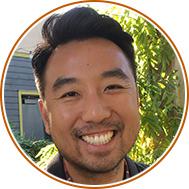Kouang Chan,
Director and Ombudsperson,
Office of the University Ombuds for Students and Staff

1. Describe your role for UT.
I work as the Director and Ombuds in the Office of the University Ombuds for Students and Staff. We are a confidential, neutral, independent, and informal office that assists visitors in exploring options related to their academic and work life. We provide a space for our visitors to discuss problems and gain insight into their concerns. We like to think of ourselves as a roadmap for our visitors on their way to resolving disputes and problems.
2. What was the most important lesson you learned as a new manager?
Own your mistakes and repair trust quickly with your staff. It builds stronger relationships and models the type of servant leadership that most people want to see in their managers.
3. What advice do you have for managers to help develop their team?
My advice to managers would be to communicate clearly, specifically, and respectfully, and to do so consistently. To communicate clearly means ensuring your team understands what your intentions and goals are for your department or the projects you work on. Specifically, means you have detailed objective outcomes and expectations. People can’t help you or perform at expected levels if they don’t know what you want. Be SMART (specific, measurable, attainable, realistic, timely.) Respectfully, means as the leader you set the tone and culture for your team. If you make snide comments or put down other team members or stakeholders, that interaction is noticed and it could demoralize your team. People don’t leave work because of work, they leave because of people. So create an environment that acknowledges and respects everyone's contribution in a supportive way. Then repeat it.
4. Why is learning in the workplace important?
Workplace learning is important because it gives you an opportunity to stretch yourself. It is a way to test out new ideas, share insights, connect with people, and sometimes provide a solution to a problem. Not only that but the more you learn the better you become at discerning what is relevant information and what could be stored for future use.
5. What is your favorite way to learn (feel free to mention any tool, subscriptions, or services here as well)?
I’m a big reader so my favorite way to learn and absorb information is reading. I’ll probably have three or four books going at a time. As I start on one and it isn’t holding my interest, I’ll let that book go and read another. If I can find one new bit of information that will change or improve how I see things or work, then to me it is worthwhile. I frequently use the Austin Public Library system and our own UT libraries too. It is an amazing resource. Plus they’re a fun place to hang out in! I also listen to podcast on my commute. I’m a fan of Freakonomics, Hidden Brain, The Next Big Idea, as well as the Jordan Harbinger Show. I’ll also add that YouTube has been a great source of assistance for DIY projects.
Contact
For questions about or requests for services, contact L&D through our brief intake form.
